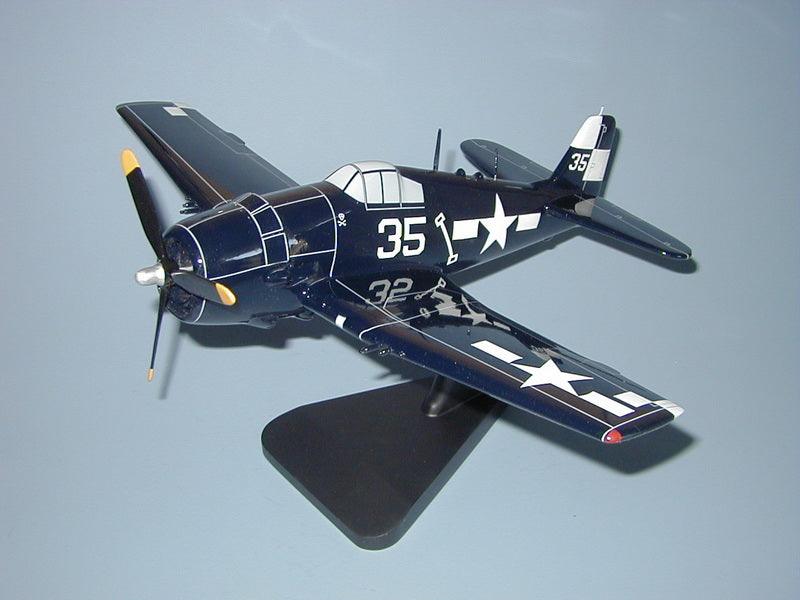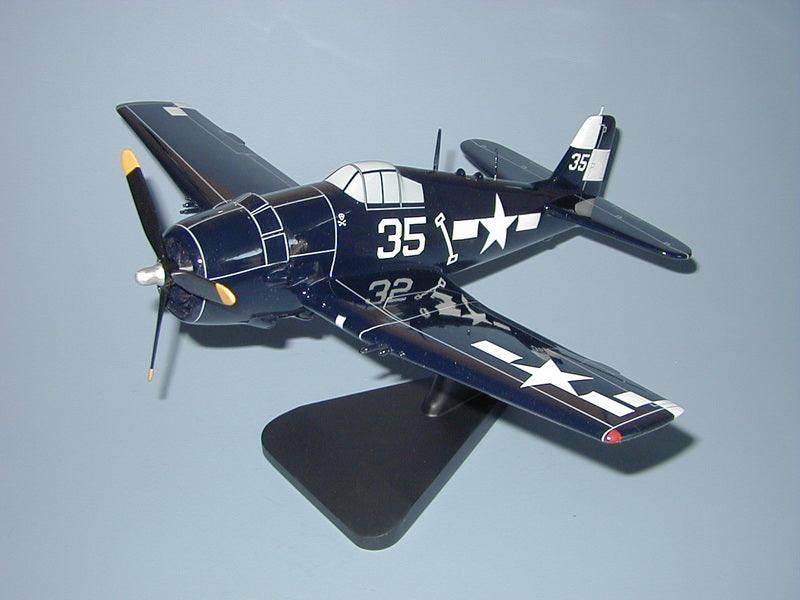F6F Hellcat airplane model. The Grumman F6F Hellcat was ordered for the US Navy after the initial shock of Allied contact with superior Japanese fighters, particularly the Mitsubishi A6M Zero, during the first few months of the Pacific War. As a result of this experience of combat against higher-performance machines the Hellcat's specification required the most powerful engine available. The prototype X6F-1, a progression from the F4F Wildcat which was then the standard fighter of the Navy, was provided with a 1700hp Wright R-2600 engine, but a month later - on 26 June1942 - it was re-engined with a 2000hp Pratt and Whitney R-2800 (the birth of the F6F therefore coinciding almost exactly with the great carrier Battle of Midway, 4-6 June 1942, in which its predecessor - the Grumman F4F Wildcat - played a critical role).
The Hellcat was eventually credited with destroying more than 6,000 Japanese aircraft - 4,947 of these by F6Fs of the USN carrier squadrons (209 of the others by land-based Marine Corps F6Fs, and the remainder by Hellcats of other Allied countries). The F6F's most spectacular exploit was the destruction of more than 160 enemy aircraft in one day - 19 June 1944 - in the Battle of the Philippine Sea, in the aerial massacre usually known as "The Great Marianas Turkey Shoot."
A total of 2,545 Hellcats were delivered in 1943, in 1944 no fewer than 6,139, and in 1945 a further 3,578 - total production was 12,272 units.
Mahogany Wood. Wingspan 17 1/2 inches, Length 13 1/2 inches.


